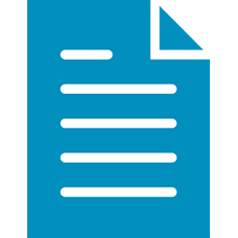Micro and small enterprises (MSEs) are a source of income for many people in Indonesia and act as a crucial informal social safety net mechanism. However, OECD (2018) reported that the majority of MSEs in Indonesia have low productivity or capital, are dominantly family-owned, and employ many unpaid family members or are self-employed. While there is evidence that the internet improves the performance of MSEs (Clarke, Qiang, and Xu, 2015; Falentina et al., 2019; Paunov and Rollo, 2016), evidence has also been documented on constraints faced by women-led MSEs which lead to their final decision to stay small and informal. Among others, time constraints and the burden of household domestic duties are two major factors keeping them small and informal.
This study focuses on the link between the participation of women-led MSEs in the online marketplace and the welfare of household members. While advances in the online marketplace continue to open new economic opportunities for MSEs, little is empirically known about whether the benefit derived from MSEs’ participation in the online marketplace could extend beyond the performance of the business itself and eventually lead to improvement in the welfare of household members.
This study is aimed at answering the following research questions.
- What is the impact of women-led MSEs’ participation in the online marketplace on the welfare of household members?
- What are the working mechanisms through which women-led MSEs’ participation in the online marketplace may cause changes in the welfare of household members?
This study combines data from a quantitative survey and qualitative interviews. Primary data was collected in 2018 and 2021 from MSEs in Kabupaten (District of) Bantul and Kota (City of) Yogyakarta in Yogyakarta Province. The survey asked questions on internet utilization by MSEs and questions on household members of the entrepreneurs. In 2018, we collected data from 576 MSEs that were representative of the selected kabupaten and kota. In 2021, the sample was revisited and 520 MSEs were successfully re-interviewed. Nearly 50% of the entrepreneurs in our sample are women. We used two groups of indicators to measure the welfare of household members, i.e., child-level indicators (school participation, weight-for-age, height-for-age) and household-level indicators (wealth index and access to formal credit).
The qualitative study will gather data and information through in-depth interviews and focus group discussions (FGDs). To conduct these techniques, we will use the structured guides for the interviews and FGDs. The in-depth interviews at the household level mainly target female entrepreneurs in four categories of the marketplace engagement. Following field visits, field notes will be compiled according to the predetermined categories and subcategories of the analytical framework. Then, the analysis will be conducted to see common patterns and outliers. The theme and issues from the household analysis will be further discussed in FGDs involving relevant stakeholders in both locations, such as kabupaten/kota-level MSE agencies, women empowerment agencies, and the associations of entrepreneurs.




